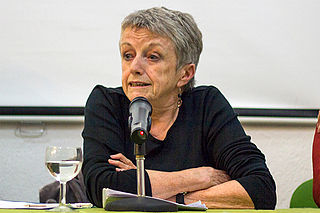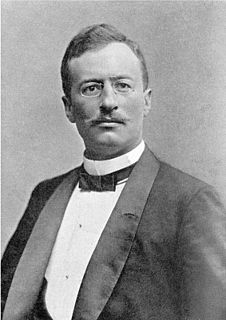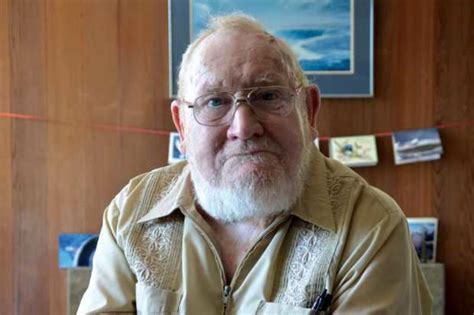Top 20 Quotes & Sayings by Famous Geographers
Explore popular quotes by famous geographers.
For me, places are articulations of 'natural' and social relations, relations that are not fully contained within the place itself. So, first, places are not closed or bounded - which, politically, lays the ground for critiques of exclusivity. Second, places are not 'given' - they are always in open-ended process. They are in that sense 'events'. Third, they and their identity will always be contested (we could almost talk about local-level struggles for hegemony).
The whole race, which is now called Gallic or Galatic,is madly fond of war,high-spirited and quick to battle,but otherwise straightforward and not of evil character.For at any time or place and on whatever pretext you stir them up,you will have them ready to face danger,even if they have nothing on their side but their own strength and courage.
Through the clouds of smoke I seemed to see all old Asia before me, and the adventures of past years behind me. A carnival of old camp-scenes danced before my mind’s eye, expiring like shooting-stars in the night—merry songs which came to an end among other mountains and the dying sound of strings and flutes. And I was surprised that I had not had enough of these things and that I was not tired of the light of camp-fires.
An individual can be truly moral only when they are their own master. From the moment when they awaken to a comprehension of that which is equitable and good it is for them to direct their own movements, to seek in the their conscience reasons for their actions, and to perform them simply, without either fearing punishment or looking for reward.
Much of the geographical work of the past hundred years... has either explicitly or implicitly taken its inspiration from biology, and in particular Darwin. Many of the original Darwinians, such as Hooker, Wallace, Huxley, Bates, and Darwin himself, were actively concerned with geographical exploration, and it was largely facts of geographical distribution in a spatial setting which provided Darwin with the germ of his theory.
There remain of Europe, first, Macedonia and the part of Thrace that are contiguous to it and extend as far as Byzantium; secondly, Greece; and thirdly, the Islands that are close by. Macedonia, of course, is a part of Greece, yet now, since I am following the nature and shape of the place geographically, I have decided to classify it apart from the rest of Greece and to join it with that part of Thrace.
The meaning of geography is as much a sealed book to the person of ordinary intelligence and education as the meaning of a great cathedral would be to a backwoodsman, and yet no cathedral can be more suggestive of past history in its many architectural forms than is the land about us, with its innumerable and marvellously significant geographic forms. It makes one grieve to think of opportunity for mental enjoyment that is last because of the failure of education in this respect.
You ask why London has to 'stand for' anything. One response is that in fact it always inevitably does. One could say at the moment it stands for a complex mix of multiculturalism and financial power. Interestingly, that is a political mix of progressive and oppressive. What I'm arguing is simply that we should take responsibility for the effects of 'our place' around the world. To take responsibility for our embeddedness. If you don't want to, so be it. It does demand an imaginative engagement with our planetary interdependence and that can be quite challenging.
The very foundation of our science is only an inference; far the whole of it rests an the unprovable assumption that, all through the inferred lapse of time which the inferred performance of inferred geological processes involves, they have been going on in a manner consistent with the laws of nature as we know them now.
The problem with the finance sector is not that it has crashed (though that has done enormous damage around the world) but the damage that it did even in its pomp. It is for that reason that we must not go back to business as usual. Most of all it is imperative we reduce the dominance of finance. And that means economically, ideologically, and in terms of political voice.
Three classes inhabited the city (Alexandria in Egypt): first the Aegyptian or native stock of people, who were quick-tempered and not inclined to civil life; and secondly the mercenary class, who were severe and numerous and intractable...; and, third, the tribe of the Alexandrians, who also were not distinctly inclined to civil life, and for the same reasons, but still they were better than those others, for even though they were a mixed people, still they were Greeks by origin and mindful of the customs common to the Greeks.
The Aegean sea washes Greece on two sides: first, the side that faces towards the east and stretches from Sunium, towards the north as far as the Thermaean Gulf and Thessaloniceia, a Macedonian city...; and secondly, the side that faces towards the south, I mean the Macedonian country, extending from Thessaloniceia as far as the Strymon.
Incidentally, I don't think there is a non-adjectival 'globalisation'. What we have now is a particular form: dominated by finance and multinational corporations and by a rhetoric (though not a reality) of 'free trade' and market forces. So I'm not a localist. I'm an internationalist, but one who believes (a) that such a thing is really only possible through a prior grounding and (b) that the terms of our present globalisation have to be challenged politically.






